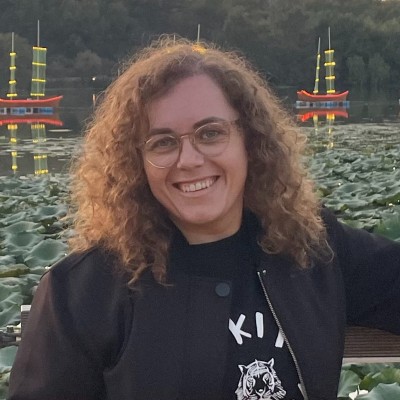MCC-Spain
Population based multicasecontrol study on common tumours in Spain

- Coordinator
- Manolis Kogevinas
- Funded by
- CIBERESP, FIS
- Website
- http://www.mccspain.org/
The MCC-Spain study, conducted within the Spanish Consortium for Biomedical Research in Epidemiology & Public Health (CIBERESP), is a unique initiative to evaluate etiological factors for common cancers and will promote cancer research and prevention in Spain.
In 2008, the CIBERESP, within the framework of Cross-Sectional Action in Cancer, provided the resources to launch a population-based multicase-control study (MCC-SPAIN) in order to research the influence of environmental factors and their interaction with genetic factors in frequent tumours or tumours with peculiar epidemiological characteristics in our country, in which the environmental factors involved are not sufficiently understood.
The selected tumours are colorectal cancer, breast cancer, gastroesophageal cancer and prostate cancer. Chronic lymphocytic leukaemia (CLL) has been recently added to the study. Colorectal cancer has been selected due to its frequency in both sexes. Gastroesophageal cancer has been selected due to its characteristic geographic pattern and the environmental hypotheses suggested. Prostate cancer has been chosen due to its frequency and its hormonal nature, sharing with breast cancer the etiological hypotheses of endocrine disruption. The study involves data collection using an interview as well as the obtention of several biological samples. The population controls have been selected from primary care centre lists and interviews are performed in these centres.
The MCC-Spain study is coordinated by Manolis Kogevinas (ISGlobal) and Marina Pollan (ISCIII). Researchers from the CIBERESP in 11 autonomous communities of Spain (Catalonia, Madrid, Asturias, Navarra, Basque Country, Murcia, Cantabria, Andalusia, Valencia, Castilla y Leon) are participating in the study. Up until March 2010 information and biologic samples were obtained from 1,600 population controls, 1,200 colon and rectum cases, 750 breast cancer cases, 450 prostate cancer cases, 120 stomach cancer cases, and the collection of leukaemia cases was initiated.
Our Team
Principal Investigator (PI)
-
 Manolis Kogevinas Research Professor
Manolis Kogevinas Research Professor
Our Team
-
 Cecilia Persavento Research Technician
Cecilia Persavento Research Technician -
 Mark J Nieuwenhuijsen Research Professor, Director of the Urban Planning, Environment and Health Initiative, and Head of the Climate, Air Pollution, Nature and Urban Health Programme
Mark J Nieuwenhuijsen Research Professor, Director of the Urban Planning, Environment and Health Initiative, and Head of the Climate, Air Pollution, Nature and Urban Health Programme -
 MARIONA BUSTAMANTE Staff Scientist
MARIONA BUSTAMANTE Staff Scientist -
 Cristina Villanueva Associate Research Professor
Cristina Villanueva Associate Research Professor -
 Lourdes Arjona Lab Manager and Research Technician
Lourdes Arjona Lab Manager and Research Technician -
 Gemma Castaño Staff Scientist
Gemma Castaño Staff Scientist
Other projects
See Past ProjectsINMA - Environment and Childhood Project
HELIX
Novel tools for integrating early-life environmental exposures and child health across Europe
EGG/EAGLE
Early Genetics Growth/Early Genetics and Lifecourse Epidemiology
PACE
Pregnancy and Childhood Epigenetics
LIFECYCLE
Early-life stressors and LifeCycle health
OMEGA-NET
Network on the Coordination and Harmonisation of European Occupational Cohorts
BiSC (Barcelona Life Study Cohort)
HARMONIC
Health effects of cArdiac fluoRoscopy and mOdern radIotherapy in paediatriCs
Mobilise-D
Connecting digital mobility assessment to clinical outcomes for regulatory and clinical endorsement
EARLY-ADAPT
Signs of Early Adaptation to Climate Change
COVICAT
Cohorte Covid-19 en Cataluña
ATHLETE
Advancing Tools for Human Early Lifecourse Exposome Research and Translation
CONTENT
Cohort of COVID-19 in Spain: social dynamics, mental health and inequalities
EUCAN-Connect
A federated FAIR platform enabling large-scale analysis of high-value cohort data connecting Europe and Canada in personalized health
OBERON
An integrative strategy of testing systems for identification of EDs related to metabolic disorders
EXPANSE
EXposome Powered tools for healthy living in urbAN SEttings
AURORA 2021
Actionable eUropean ROadmap for early-life health Risk Assessment of micro- and nanoplastics
ONES
Fine Particle Matter, Fetal Growth, and Neurodevelopment: Examining Critical Windows of Susceptibility
AIR-NB
Pre-natal exposure to urban AIR pollution and pre- and post-Natal Brain development
El impacto de la exposición al metaboloma de esteroides materno-fetales en el crecimiento infantil y los resultados neurológicos (IGRO)
Project Code: PI21/01269
NutinBrain
The role of seafood and nut consumption on human neurodevelopment from pregnancy to adolescence
ALTER - Contaminación del aire, microbiota intestinal y neurodesarrollo en los primeros 24 meses de vida
Project Code: PI21/01278
Alimentación S2: por una dieta saludable y sostenible
Estudio sobre la exposición a nano y microplásticos a través del agua de consumo de Barcelona
¿Es mejor consumir el agua de grifo si queremos reducir la exposición a nano/micropláticos?
UrbanKids
Urban and social environment and childhood obesity – a natural moving2health experiment
Urban Health Citizen Lab
Urban planning, environment and health
Characterizing Oral Exposure to Nanoplastics and Microplastics
Characterization of Oral NMP Exposure
iGenCO
In-Depth Genomics and Cross-Omics Analysis for Undiagnosed Rare Diseases on a User-Friendly Collaborative Platform
5G expOsure, causaL effects, and rIsk perception through citizen engAgemenT
GOLIAT
CityExposomeCat
An Exposome Approach to Urban Health: Individualized Environmental Exposure Assessment in an Adults Population Cohort Study (GCAT)
TwinAir
Digital Twins Enabled Indoor Air Quality Management for Healthy Living
Subclinical Infections in Children and Long Term Health Effects
Infection acquisition in early life and health outcomes in childhood - MARATO TV3
Exposición prenatal a sustancias poli y perfluoradas en agua de consumo y neurodesarrollo en el inicio de la vida
Project Code: PI20/00829
Base genética materna y fetal de la función placentaria
Project Code: PI20/01116
TOLIFE
Combining Artificial Intelligence and smart sensing TOward better management and improved quality of LIFE in chronic obstructive pulmonary disease
BWater
Drinking Water in Barcelona: Sustainability and Health Impact Assessment
CUPID
intoDBP
Innovative Tools to Control Organic Matter and Disinfection Byproducts in Drinking Water
FINDOOR
FTIR spectroscopy for real-time detection of bacterial outbreaks and the rapid identification of pathogenic serotypes, relapsing infections and antibiotic resistance
OccRF-Health
Occupational exposure to radiofrequency electromagnetic fields: From exposure assessment to study of health in workers and their offspring
EPHOR
Exposome Project for Health and Occupational Research
EXPONIT
Analysing and studying how night shift work affects workers' circadian rhythms and health
IHEN
International Human Exposome Network
El microbioma intestinal y la disrupción circadiana
Un estudio epidemiológico molecular sobre enfermedades cardiometabólicas y salud mental
B-Triage
Una prueba en el punto de atención para la estratificación del riesgo de los pacientes febriles basada en los niveles de sTREM-1
e-QuoL
e-health tools to promote Equality in Quality of Life for childhood to young adulthood cancer patients, survivors and their families
AM-MENTAL
What happens with your mental health when your supervisor is an algorithm?
UBDPOLICY
The Urban Burden of Disease Estimation for POLICY Making



